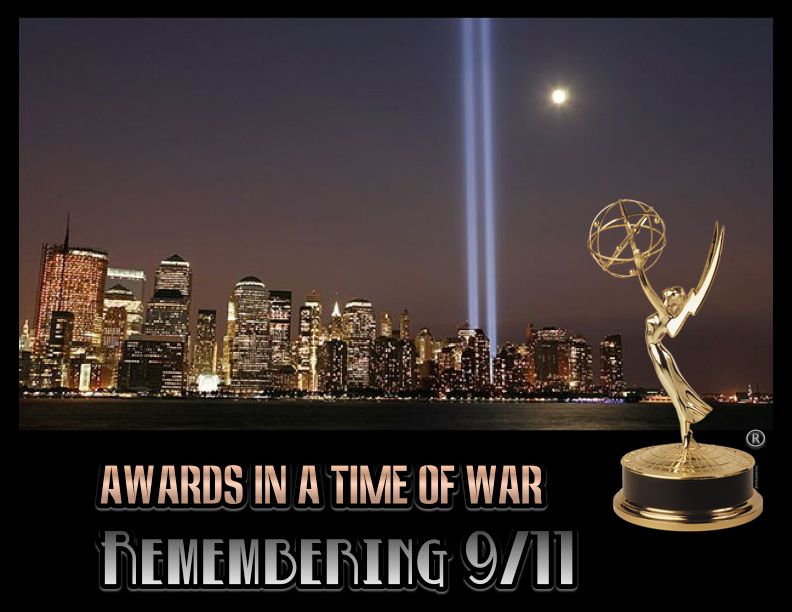
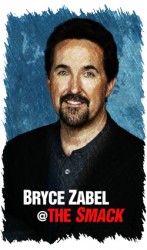 There Was No Rule Book
There Was No Rule Book
Since the Emmy® Awards came into existence in 1949, they had never been postponed or canceled until 2001. In that year it happened twice.
I was elected Chairman/CEO of the Academy of Television Arts and Sciences in August 2001, almost a month to the day before 9/11. The Emmy® broadcast was scheduled for September 16th of that year.
This meant that the first big decision on my watch was whether it was possible — five days after the worst act of terrorism in history — to imagine a walk down the red carpet with Hollywood celebs. Clearly, it wasn’t.
As everyone re-plays the “Where were you?” moment that the horrific events became for all of us, my own memories combine the moral outrage at such a hideous act of mass murder with the POV of show business struggling to cope with this new reality of terrorism. It was a terrible time for the nation, one that I still think about often, and the most challenging professional moment in my career.
Must the Show Go On?
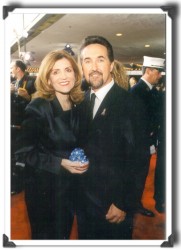 When my running partner and I saw my wife, Jackie, driving up to find me on the morning of September 11th, I knew that something bad had to have happened. My first thought was that one of my children had been hurt. Instead, she told us to get in the car, that planes had crashed into the World Trade Center towers in New York. America was at war… with somebody.
When my running partner and I saw my wife, Jackie, driving up to find me on the morning of September 11th, I knew that something bad had to have happened. My first thought was that one of my children had been hurt. Instead, she told us to get in the car, that planes had crashed into the World Trade Center towers in New York. America was at war… with somebody.
At home my family huddled in front of the TV while we all watched, like everyone else in the nation. I remember feeling that life had just gotten so much more dangerous and complicated.
At the same time, I was also on the phone with the team from the TV Academy and our network sponsors at CBS. During the phone tag interaction, it was clear that this event was going to impact the Emmys® strongly. Even the idea that they might not happen at all was on the table immediately. I asked if there had ever been a year when they had not taken place. The answer was no. That Tuesday afternoon, after more phone calls and meetings, there was unanimous support to cancel the upcoming show on Sunday.
This would have an incredible financial impact on both CBS and the Academy, but no one at this point even cared. We confirmed that decision to the media with the caveat that there was yet no clarity as to when the ceremony would be re-scheduled. After all, the death toll was mounting in New York, Washington and Pennsylvania. Nothing seemed to matter but that. Certainly not a TV show where celebrities dressed up and gave each other awards.
Things were complicated at the Academy by the fact that, although I had just been elected a month earlier, I was not scheduled to officially take office until October 1. So my predecessor Meryl Marshall-Daniels, the Academy executive director Jim Chabin and I went to CBS as a team the next day to talk it out with Les Moonves and his people. Two dates were on the table — the only times that the Shrine Auditorium could be rented again — September 24 and October 7. The network side tended to favor September 24 because the Emmys® have always been like a starting gun for the fall season. The Academy side tended to favor October 7 because the passions of the moment made it seem inconceivable that anyone would be ready for a red carpet in less than two weeks.
In the end, after both sides canvassed the likely attendees, we realized that September 24 would have too many no-shows. October 7 became the date by default. There had also been debate about giving up and not doing them at all. While we all felt while that would have been an easy decision, we came to believe that waiting almost a month after the attacks felt like it would work.
Fate had other ideas.
Making It Up Day-by-Day
In the weeks to come, as the nation struggled to find its footing, we were urged as a people to get back to whatever it was we did before 9/11 because, if we didn’t, then “the terrorists win.” I remember an editorial cartoon of Osama bin Laden in his cave cursing the fact that we re-scheduled the Emmys® and explaining to an underling that this was a defeat for terrorism. If only it were that simple.
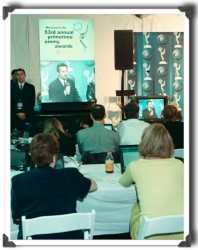 I did so much media in that time period that it still seems like a dream. The Los Angeles Times called me “the Ari Fleischer of the entertainment industry,” a comparison to Bush’s press secretary that felt like more of a compliment at the time than it would later seem. All I know is that during those nearly 60 days, I woke up every morning and put on a tie and drove into town to face whatever challenge was coming up. I’d been a CNN correspondent and a local TV news reporter before I became a Hollywood writer/producer, but in those news incarnations I was always the one asking the questions. This time I was answering them as best I could.
I did so much media in that time period that it still seems like a dream. The Los Angeles Times called me “the Ari Fleischer of the entertainment industry,” a comparison to Bush’s press secretary that felt like more of a compliment at the time than it would later seem. All I know is that during those nearly 60 days, I woke up every morning and put on a tie and drove into town to face whatever challenge was coming up. I’d been a CNN correspondent and a local TV news reporter before I became a Hollywood writer/producer, but in those news incarnations I was always the one asking the questions. This time I was answering them as best I could.
On October 7th, the Sunday morning when the 53rd Emmy® Awards had been re-scheduled to air, I was lacing up my shoes for another run to shake off the nerves that come with knowing you will be speaking before 6,000 people in an audience and 90 million others on their TV sets. But my phone rang and a friend said, “Turn on your TV.”
That day was the beginning of the invasion of Afghanistan. So not only did the terrorists not care about show business, neither did the White House. I immediately called CBS’s Moonves who was on the golf course that morning, and we both began again to canvass our respective constituencies. Never had either of us had so little time and so few facts to make such an important decision. What we both found out in short order is that if we went ahead with the Emmys® that night we’d have a lot of empty seats. Most actors, producers and writers were concerned about the news and wanted to be home with their families.
We canceled the Emmy® Awards a second time.
The global media was already assembled at the Shrine and Moonves, producer Don Mischer and I ended up facing them at an impromptu news conference. Limos were turned around, make-up artists sent home, and the stage-lights turned off. Three-thousand gourmet dinners, already bought and paid for, were donated to the homeless shelters that day in an act of charity that felt like it matched the national mood that still prevailed — the one that said we were all in this together.
The next day, I appeared on Politically Incorrect with a Muslim activist and Joan Rivers and had Bill Maher berate me for not having the guts to just go through with the show. Maher was on a  tear at the time, having just gotten in hot water for saying it was “cowardly” to lob cruise missiles at terrorists in comparison to the courage it must have taken them to commit suicide in an airliner bomb. But the truth is, he was just as wrong about the Emmys®. At such a sensitive time, it made no sense to throw a party that nobody wanted to come to. Had we done the Emmys the night America went to war to avenge 9/11, it might have dealt a fatal blow to the ceremony, making those of us behind it look hopelessly out of touch.
Every night for those two months my mind raced as I fell asleep. For better or worse, a national media that was on fire to cover the sidebars of 9/11 found the Emmy® postponements to be the perfect example of the Hollywood impact. The whole world, it turned out now, was watching. We had to get it right.
That was the question of the moment. Given two postponements, was it time to just admit defeat and say that 2001 was going to be the year the Emmys® never happened? The one year in the record books with the asterisk by it?
Do the Right Thing: Whatever That Is
There were voices that argued that the whole thing had gotten out of hand. They had a point. Even as the leader of the TV Academy, it seemed obvious to me that no awards show really is worthy of the kind of attention this one was getting. That realization was also the answer. This wasn’t about an awards show any more. And even though none of us could 100 percent put our finger on what it was all about, we knew it had to happen.
We picked a new date, a month away, November 4th. We would do these Emmys® on that day even if no one came. I started telling reporters that if nobody showed up, I would stick all the Emmy® statuettes in a rented Suburban and drive them from house to house and give them to the winners.
 The reality of those turbulent days was trying to define what was “appropriate” and what “tone” meant in an entertainment landscape reeling from the impact the attacks had on its on-air and in-theater product. During this time, there was a constant daily drill to talk to as many people as possible — Academy governors, network executives, rank-and-file showbiz types and reporters — all to gauge what the way forward should be. My constant companion during this period was my wife — we’d met back when we were both TV reporters — and she drove me everywhere so I could work the phone, test out talking points with her, and stay on top of events that seemed to break hourly.
The reality of those turbulent days was trying to define what was “appropriate” and what “tone” meant in an entertainment landscape reeling from the impact the attacks had on its on-air and in-theater product. During this time, there was a constant daily drill to talk to as many people as possible — Academy governors, network executives, rank-and-file showbiz types and reporters — all to gauge what the way forward should be. My constant companion during this period was my wife — we’d met back when we were both TV reporters — and she drove me everywhere so I could work the phone, test out talking points with her, and stay on top of events that seemed to break hourly.
Many adjustments were made. One key change was downgrading the dress code from formal, ditching the evening gowns and tuxedos in favor of business attire. We re-named the Governor’s Ball the “Unity Ball” and and asked all the studios and networks to cancel their own parties. The idea was that everyone stay together and hang out as a community for the evening, rather than breaking up for separate events.
After two no-shows, we lost the Shrine Auditorium over a scheduling conflict. Moonves and I discussed doing the Emmys® in a military hangar up near Oxnard where service men and women scheduled to ship out to Afghanistan could sit with celebrities. We got a lot of pushback from agents, managers and celebrities and it never happened. Two showrunners called me personally to say that if we went ahead with this plan they would not come even though they were nominated. Although national unity was very much on people’s minds, there just wasn’t a desire to mix it up in this way. So we picked the more traditional venue of the smaller Shubert Theater in Century City and made do.
Security was beefed up as never before with snipers on roofs, metal detectors and a massive police presence. It was no exaggeration when I told the press that people who attended the Emmys® would be safer in the theater that night than they would in their own bathtub.
For weeks, I’d been discussing these precautions with our security team and had made a point in interviews that there would be no sneaking in and no exceptions. Then, on the way in that day, I discovered I’d left my own tickets at home. We had to turn around and go get them — all the way back to the Conejo Valley, adding another forty minutes to our trip.
We didn’t just lose the Shrine Auditorium during our on-again-off-again ceremony. We also lost our producer, Don Mischer, who had to leave to produce the opening ceremonies of the Winter Olympics that were coming up. We also lost our script in that after each postponement it had to be ripped up and started over because the mood of the country and of Hollywood was changing day-by-day.
A good example is the Saturday Night Live when Mayor Giuliani appeared and said it was okay to be funny again. We figured that if the Mayor of New York City was giving us the thumbs up to make people laugh again, we should take his advice.
A Night to Remember
 The November 4th telecast was funnier than the September 16th broadcast could ever have been and funnier than we would have allowed the October 7th broadcast to be. Remember host Ellen DeGeneres welcoming us to the 53rd, 54th and 55th Emmy® Awards, then casting herself as the Taliban’s worst nightmare, wondering if there was anything that could bug them more than a lesbian woman in a pantsuit surrounded by Jews?
The November 4th telecast was funnier than the September 16th broadcast could ever have been and funnier than we would have allowed the October 7th broadcast to be. Remember host Ellen DeGeneres welcoming us to the 53rd, 54th and 55th Emmy® Awards, then casting herself as the Taliban’s worst nightmare, wondering if there was anything that could bug them more than a lesbian woman in a pantsuit surrounded by Jews?
Her tone was perfect and her timing spot on. Â I loved it when she said of the terrorists who had attacked us just two months earlier: “They can’t take away our creativity, our striving for excellence, our joy,” she said. “Only network executives can do that.”
Traditionally, the Academy chairman speaks for a couple of minutes and, charitably, it’s not a show highlight. But on the 9/11 Emmys® I felt a higher standard, amplified by the fact that I was the first writer to hold the position since Rod Serling. I wrote my own speech for that night, including:
Terrorism doesn’t stop with shattered glass and shattered lives. It aims to crush the spirit of the survivors. To have given up (on the Emmys®) would have been more than a postponement or a cancellation, it would have been a defeat. That’s because for 52 years previously — through war and peace, through assassinations and civil unrest — the Emmys® have been awarded on television. Like baseball and Broadway, we are an American tradition. Especially in such challenging times, these cultural touchstones become important. Many millions of viewers from more than 90 different nations are watching tonight. They see us exercising our freedom to assemble, and proclaiming that fundamental ideal that inspires all artists, freedom of expression.
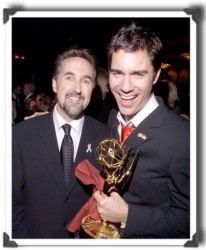 I honestly don’t recall the details about the winners and losers that night, the kind of stuff you’d ordinarily focus on. I do remember that Eric McCormack won his first Emmy, and how I was glad we’d waited and still done the show, because he and the other winners deserved their moments.
I honestly don’t recall the details about the winners and losers that night, the kind of stuff you’d ordinarily focus on. I do remember that Eric McCormack won his first Emmy, and how I was glad we’d waited and still done the show, because he and the other winners deserved their moments.
But mostly I remember watching the audience as Phil Driscoll’s trumpet solo of “God Bless America” opened the show and, later, as Barbara Streisand’s “You’ll Never Walk Alone” ended it, and seeing people with tears in their eyes, squeezing hands with their significant others. Producer Gary Smith felt that if we opened and closed with the proper emotionality that viewers would cut us the slack to do a more traditional show in-between. He was right.
Finally, there’s the memory of being interviewed on The Today Show a few days before the show actually aired. Matt Lauer asked if it bothered me that the Emmys had ended up programmed against the seventh game of an incredibly exciting World Series between the New York Yankees and the Arizona Diamondbacks — pointing out that we were likely to get creamed in the ratings. I wasn’t at all bothered, I told him.
As it turned out, the Emmys® and the World Series were two live events that were going on in the United States on the same night less than two months after 9/11. They were the proof we were looking for that life could go on.
An edited version of this essay first appeared at The Wrap. Photos provided courtesy of Mathew Imaging (Craig Mathew). Â


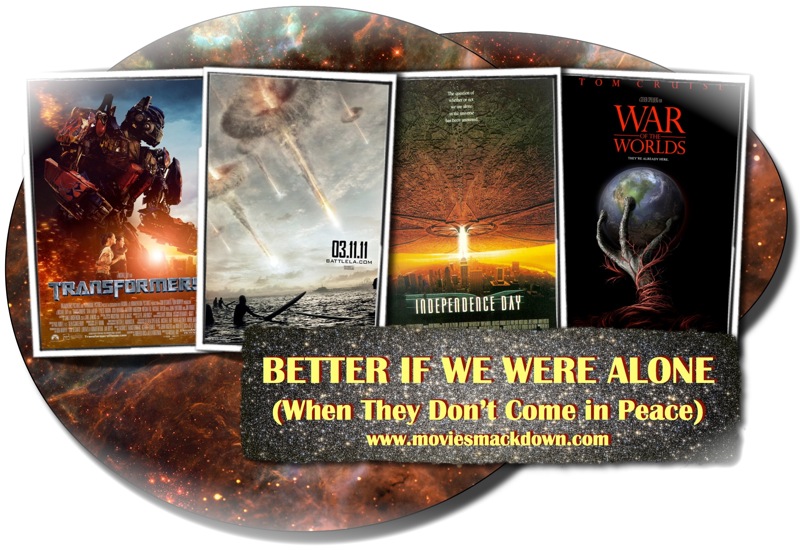
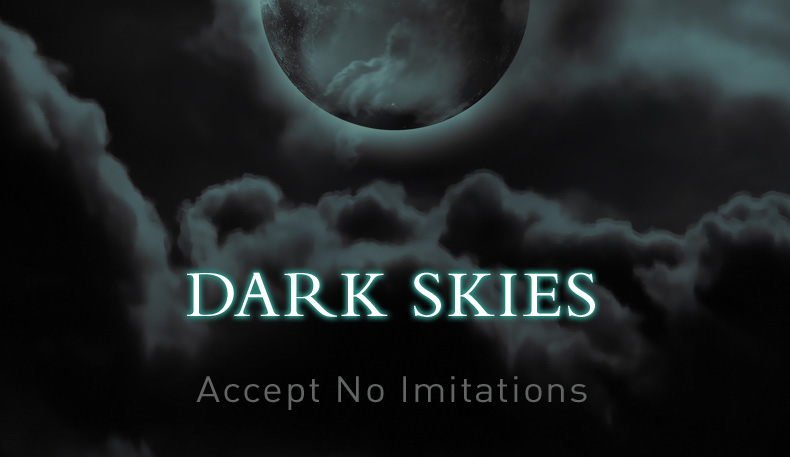
Re-reading your post two years later.. your narrative remains inspiring and disquieting as ever. I repeat my 2011 response to this post: “Bravo, and bravo again to you.”
You did such a phenomenal job. Because I had worked for the TV Academy, I remember quite clearly hearing/reading your interviews and feeling so proud to have such a remarkable man in charge. Well done!
I never knew any of this. Nice read and timely.
Loving (forever) the history of televison and able to recall thousands of (usually) useless historical facts about the medium, I remember distinctly when Mr. Zabel was elected. One of the first writers – COOL. What I could never have imagined was how Zabel will forever be etched in the history of the medium due to his tremendous leadership during that time in the industry. The industry didn’t quite now how to react. Business as usual, how? Development, what? We looked to our leaders in the business at the time, the Moonves’, studio heads, well-known showrunners, etc. etc. But due to the Emmys timing that year, the town looked at Zabel. I remember watching the countless interviews he gave about what they were going to do with the Emmys. I felt, it really would set the tone for how the television community was “supposed” to react to the horrific events, or at the very least, let everyone know it was okay to begin moving on. The town may not come together very often, on very much, but it does for that event more so than ever that particular year. Everyone had their opinion. I’m sure Zabel could write a book on those alone – perhaps one day. AND delayed THREE TIMES? Most men/women would have just cancelled. And to date, I still think one of the funniest Emmys ever. Thought perhaps it was imagined but watching a clip recently reminded me – nope it really was one of the best ever — and warmest. Those who attended to support the art of television, or to come out and support their companies and/or people they work with will forever have my utmost respect, many attended who didn’t need to be there that night. Mr. Zabel will forever be etched in the history of the television medium for his place during this time and his tremendous poise and direction whether he knew it or not in the moment. I think the fact he was thrown into the mix is even more impressive. For those wondering if I’m kissing up to try and get my next gig – I’m not. I’ve long since left the business and am an underwater basket weaver in Naples, Florida — (what? a gig’s a gig) — with no plans to return. But I did read this article – and loved it. As a historical television history buff – kudos.
Wow… what a moving story. I remember watching the Emmys that year. I remember wanting them to go on. I remember laughing at the jokes and thinking, “okay… we’re going to be okay”. It was nice to sit down and do something normal; something I do every year.
Thank you for this. Thank you for letting ordinary people see just how difficult a decision that was and how it still resonates 10 years later.
God bless you!
Thanks, Evelyn! It’s true… I wish I’d kept the scripts for each iteration of the show because each one got funnier. Remember Mayor Giuliani telling us on Saturday Night Live that it was okay to be funny again. Well, we figured if the Mayor said it, then we should do it.
How very appropriate to publish this story a decade after that horrible day. What an impossible conundrum you were in! And, a “novice” politician at that! Holy cow. I can’t imagine the pressure.
Yet, it’s easy for us in reading this to say, “Yeah, that makes sense” and “Of course you should do….” It couldn’t have been “easy” in the least!
Bravo Bryce for “Doing the right thing.” And, yes, the show must go on…but, in this case, just a little bit later…
Bryce:
I agree 100% with Mark — Bravo!!!
Bryce..
Over the years you shared aspects with me of your time during this unique moment in our personal and professional lives. Now I know more. I’m astonished by the breadth and depth of the issues facing you, the Academy and network officials. Throughout the push-pull of events you never lost sight of the message behind the twice-delayed Emmys program: that cancellation would be capitulation to terror.
You, the Academy and CBS responded with a program appropriate to the circumstances and unifying in tone. We needed both.
Bravo, and bravo again to you.
-Mark Sanchez